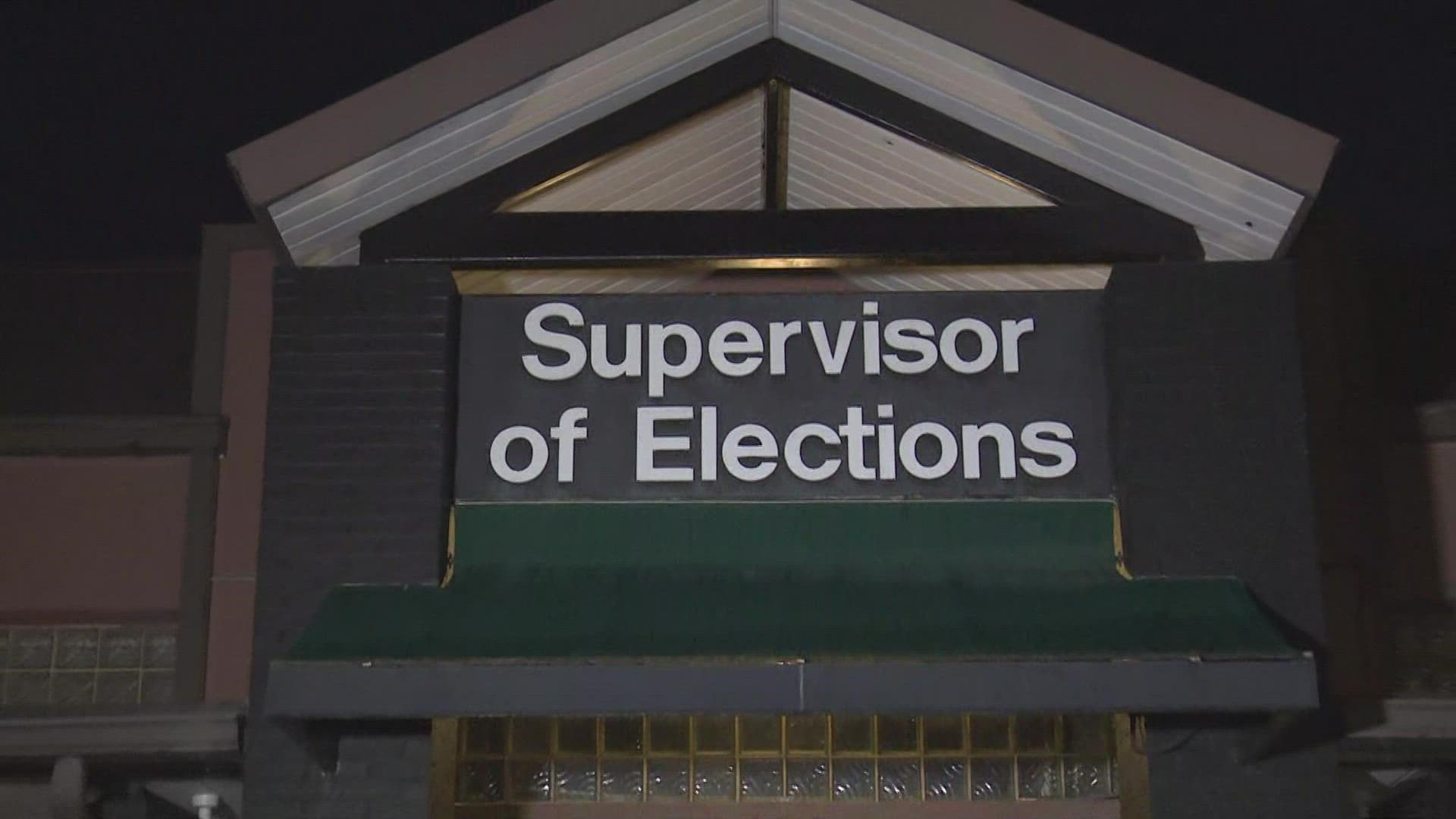JACKSONVILLE, Fla — It's been a controversial topic in Jacksonville, but now a police reform measure could be on the ballot in 2024.
The activist group Jacksonville Community Action Committee is working now to put the creation of a citizens review board to a vote.
"We've seen time and time again zero reforms happen," said Michael Sampson, II, Jacksonville Community Action Committee executive director. "People don't speak up because they don't trust that if they do speak up, they will be protected."
A solution Sampson is working on is getting one form of police reform on the ballot.
"We call it a public safety oversight committee," he said. "It's very similar to civilian review board. It's completely advisory."
Created in the wake of the George Floyd protests, the city council's Safer Together Committee examined the idea. The committee was dissolved less than a year after its creation by then-Council President Sam Newby. Before its dissolution, it issued a report showing strong community support for a citizen review board, but stiff opposition from the police union.
Randy Reaves is the local Fraternal Order of Police president.
"To us it's obvious," Reaves said. "We see it around the nation, citizen review boards are controlled by people with emotion and it's done by people that want control over police officers. So everywhere you look where citizen review boards, where cities have caved to citizen review boards, crime is rampant and Jacksonville just does not want to go that down that path."
First Coast News could not find any data linking citizen review boards to higher crime rates. Florida's three other largest cities and many smaller ones like Gainesville have some type of citizen review board.
Jacksonville Community Action Committee members believe police will be more responsive if citizens have oversight, particularly in use-of-force cases.
"Creating some type of civilian oversight would actually increase that trust and increase that transparency because regular people will feel like they have an actual say in what's happening," Sampson said. "They aren't just being talked to, but they're being talked with to create a solution that could actually help Jacksonville."
Reaves does not agree.
"If you have a complaint on an officer, there's many levels," Reaves said. "You can complain to internal affairs, you can complain to Integrity, we have the Department of Justice, you can find FDLE. There's many different avenues where you can take those complaints. When it comes to whether the sheriff or the mayor has to listen, the good thing is we live in a county that has an elected sheriff and an elected mayor. The citizens and the voters of Jacksonville every four years get to make a decision of who they want in those seats."
Sampson says they are eyeing the 2024 elections because it will take time and work to get the measure on the ballot.
"The people of Jacksonville need something concrete in regard to police reform," Sampson said. "And right now, I think just electing a new sheriff who says they're going to be nicer and talk to press more, we don't think that's a sufficient matter for police transparency in Jacksonville."
Sampson says his group is paying attention to how each sheriff candidate feels about a review board. The special election for the sheriff is August 23.
Jacksonville Sheriff's Office Public Information Officer Christian Hancock stated in an email to First Coast News that he would be "unable to speak on the listed group’s wants or intentions or offer opinions as to how or why these ideas would benefit," but gave an example of a case earlier this year. In that case the civil service board, which is available to JSO members following an internal investigation and discipline, wanted to reinstate a JSO officer who was drunk on the job.
See Hancock's full statement here:
"I would be unable to speak on the listed group’s wants or intentions or offer opinions as to how or why these ideas would benefit.
However, I can speak to the current citizen review board that is utilized during and/or following discipline being issued to officers in the agency. The “Civil Service Board” is an avenue of redress available to members following an internal investigation leading to discipline. This board is made up of civilians who review the outcome of a given case in an effort to determine if JSO’s finding of discipline meets the established criteria – with the ability to overturn the discipline in a positive or negative manner.
An example of this process occurred a few months back, involving a case where JSO Administration disciplined a member following an investigation into him being intoxicated while on duty. The charges were sustained, and the recommendation of termination was upheld in the case. The CSB ultimately found that the discipline for the member was too harsh, and recommended he be re-instated."

